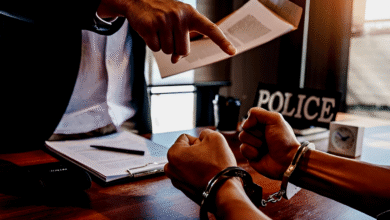Exploring Bankruptcy Options: Is It Right for You?

In today’s fast-paced world, financial challenges are not uncommon. If you find yourself drowning in debt, facing constant creditor harassment, and wondering if there’s a way out, exploring bankruptcy options might be a crucial step toward regaining financial stability. This comprehensive guide will walk you through the intricate details of bankruptcy, helping you determine if it’s the right path for you.
Definition of Bankruptcy
Bankruptcy is a legal process that provides individuals and businesses overwhelmed by debt with a chance to start fresh. It involves the liquidation or reorganization of assets under the guidance of the court.
Importance of Considering Bankruptcy Options
Understanding bankruptcy options is crucial for anyone facing financial difficulties. It’s not a one-size-fits-all solution, but for some, it can be a lifeline to escape crippling debt.
Types of Bankruptcy
Chapter 7
Liquidation Process
Chapter 7 involves the liquidation of non-exempt assets to pay off creditors. It is often referred to as a “fresh start” bankruptcy.
Eligibility Criteria
Not everyone qualifies for Chapter 7. Eligibility depends on factors such as income and the nature of the debt.
Chapter 13
Debt Reorganization
Chapter 13 allows individuals to reorganize their debts and create a manageable repayment plan, typically lasting three to five years.
Repayment Plan Details
Understanding the specifics of the repayment plan is crucial for those considering Chapter 13 bankruptcy.
Signs That Bankruptcy Might Be an Option
Overwhelming Debt
If your debt load is unmanageable, bankruptcy could be a viable solution to discharge or restructure debts.
Constant Creditor Harassment
Frequent calls and letters from creditors can be emotionally and mentally draining, signaling that it might be time to explore bankruptcy options.
Foreclosure or Repossession Threats
If you’re at risk of losing your home or other valuable assets, bankruptcy can help halt these processes.
Pros and Cons of Bankruptcy
Advantages
Debt Discharge
One of the primary benefits of bankruptcy is the potential discharge of unsecured debts, providing a clean slate for a fresh financial start.
Protection From Creditors
Bankruptcy comes with an automatic stay, preventing creditors from pursuing collection activities.
Disadvantages
Impact on Credit Score
Bankruptcy has a significant impact on credit scores, affecting the ability to obtain credit in the future.
Asset Liquidation in Chapter 7
Chapter 7 may require the liquidation of non-exempt assets, impacting personal possessions.
Alternatives to Bankruptcy
Debt Consolidation
Exploring alternatives like debt consolidation can be an effective way to manage debt without resorting to bankruptcy.
Debt Settlement
Negotiating with creditors for a reduced payoff is another option to consider before opting for bankruptcy.
Credit Counseling
Seeking guidance from credit counselors can provide insights into managing debt and improving financial habits.
Bankruptcy Process Explained
Filing the Petition
Initiating bankruptcy proceedings involves filing a petition, detailing financial information and assets.
Automatic Stay
The automatic stay halts all collection activities, giving the debtor breathing room to address financial matters.
Meeting of Creditors
A crucial step in the bankruptcy process involves a meeting with creditors to discuss the proposed repayment plan or asset liquidation.
Discharge of Debts
Successful completion of the bankruptcy process results in the discharge of eligible debts.
Bankruptcy Myths Debunked
Bankruptcy Ruins Your Credit Forever
Contrary to popular belief, credit recovery is possible after bankruptcy with responsible financial management.
Losing All Assets in Bankruptcy
Chapter 13 allows individuals to retain assets while repaying debts, dispelling the myth of losing everything.
Bankruptcy Is the Only Option for Debt Relief
Various alternatives exist, and bankruptcy should be considered after exploring other viable options.
Working with a Bankruptcy Attorney
Importance of Legal Guidance
Navigating the complexities of bankruptcy requires the expertise of a knowledgeable attorney specializing in bankruptcy law.
Choosing the Right Attorney
Selecting an attorney with experience and a successful track record is crucial for a smooth bankruptcy process.
Personal Stories: Bankruptcy Successes and Lessons
Real-Life Examples of Successful Bankruptcy Cases
Highlighting personal stories of individuals who successfully navigated bankruptcy can provide inspiration and guidance.
Lessons Learned from Those Experiences
Extracting valuable lessons from real-life experiences emphasizes the importance of careful planning and financial management.
Impact of Bankruptcy on Future Financial Health
Rebuilding Credit After Bankruptcy
Strategies for rebuilding credit post-bankruptcy include responsible credit use and timely bill payments.
Steps to Financial Recovery
Developing a comprehensive financial recovery plan is essential for long-term stability.
Read More: Bankruptcy and Child Support: Understanding the Impact
Bankruptcy and Different Types of Debt
Credit Card Debt
Addressing credit card debt through bankruptcy requires an understanding of the implications and potential discharge.
Medical Bills
Bankruptcy can offer relief from overwhelming medical bills, providing a chance for a fresh financial start.
Student Loans
While challenging, exploring options for managing student loan debt within the bankruptcy process is essential.
Bankruptcy Laws and Regulations
Understanding Federal Bankruptcy Laws
An overview of federal laws governing bankruptcy provides insight into the legal framework.
State-Specific Regulations
Understanding state-specific regulations is crucial, as they can vary and impact the bankruptcy process.
Common Bankruptcy Mistakes to Avoid
Failing to Disclose All Assets
Full disclosure of assets is crucial to a transparent bankruptcy process.
Incurring New Debts Before Filing
Taking on new debts before filing for bankruptcy can complicate the process and impact eligibility.
Seeking Professional Financial Advice
Importance of Consulting Financial Experts
Professional financial advice helps individuals make informed decisions regarding bankruptcy and other debt-relief options.
Creating a Post-Bankruptcy Financial Plan
Developing a post-bankruptcy financial plan is essential for long-term financial stability.
Read More: Negotiating Settlements for Bankruptcy and Creditors
Conclusion
FAQs
How does bankruptcy affect my credit score, and can it be rebuilt afterward?
Bankruptcy can impact your credit score, but responsible financial habits, like timely payments and smart credit use, can help rebuild it gradually.
What are the alternatives to bankruptcy, and how do I choose the right one for my situation?
Alternatives include debt consolidation, settlement, and credit counseling. The choice depends on your debt nature and financial goals; consult a financial advisor for personalized advice.
Will I lose all my assets if I file for bankruptcy, or can I keep some?
The outcome depends on the bankruptcy type. Chapter 7 may involve asset liquidation, while Chapter 13 allows retention under a repayment plan. Consult a bankruptcy attorney for clarity on your case.
How long does bankruptcy take, and what are the key milestones in the process?
Chapter 7 usually concludes in months, while Chapter 13 takes years. Milestones include filing, the meeting of creditors, and eventual debt discharge.
Can student loans be discharged in bankruptcy, or are there special considerations for managing them during this process?
Discharging student loans is challenging but not impossible. Consult a bankruptcy attorney and explore options like income-driven repayment plans for effective student loan management.












One Comment